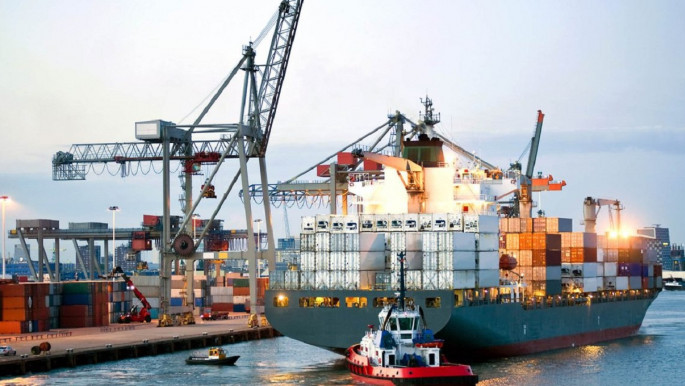-Global energy market may be unstable
-If Suez Canal closed, transporting goods costs increase
- Product arrival time will increase
-Buyers will look for alternative sources
If conflict escalates, the global economy will suffer negative consequences, which is likely to impact on BD garment exports
--Prof. Mustafizur Rahman, Distinguished Fellow, CPD
The Iran-Israel crisis has emerged as a new concern in Bangladesh's export trade. In addition, the ongoing conflict poses a potential threat to the country's economic recovery process.It is said that if the global energy market is unstable, the price of fuel oil may increase. Failure to import fuel at higher prices may lead to increased load shedding and economic losses. If the Suez Canal is closed, the cost of transporting goods and imports will increase. Product delivery time will also increase. In such a situation, buyers will look for alternative sources of clothing. There is a fear of loss of Bangladesh's export orders. Businessmen and economists have expressed concern that if this conflict is prolonged, it may have various effects on the economy of Bangladesh.
According to them, in 2022, the same situation may arise as it happened after the Russia-Ukraine war. The Red Sea shipping route, already damaged by attacks by Yemen's Houthi rebels, faces additional obstacles, officials warn. The ongoing situation could have a significant impact on global supply chains, especially if further complications arise in the Strait of Hormuz. One-fifth of the world's oil production is transported through this waterway every day. This may result in increased freight costs and shipping times.
Last Sunday, Iran launched a direct drone and missile attack on Israel in retaliation for the Israeli attack on its consulate building in Damascus, Syria. In response, Israel launched a drone attack on Iran yesterday. Several other countries in the Middle East are involved in this tension. It is believed that the Middle East crisis may be long-term. In such a situation, exporters feel that European buyers may place an export order in a country near them due to the fear of not getting the goods from Bangladesh on time. Meanwhile, in the cabinet meeting, Prime Minister Sheikh Hasina ordered those concerned to keep an eye on the developments of the Iran-Israel war situation.
At the same time, he also ordered preparations to deal with the possible effects of war. On the other hand, while talking to reporters at the Secretariat on Monday, State Minister for Commerce Ahsanul Islam Titu said that he is uncomfortable with the recent Iran-Israel attack. The flow of international events will affect the market. These challenges must be faced so that they do not enter the market. He said market regulation is still a challenge. Exporters said that the Suez Canal is used to reach the European Union (EU) countries, the main destination of Bangladesh's export products. It is economical to transport goods. The export products of Bangladesh reach the ports of various European countries through the Red Sea from Chattogram port through this canal. It saves time by at least 15 days. If this route cannot be used, the alternative is to go to Europe via South Africa. It takes an additional 15 days. It also increases the cost of transportation.
Garment exporters say the war will also hurt efforts to develop new markets based in the Middle East. For the past few years, the government and readymade garment exporters' association BGMEA have been taking various initiatives to increase exports to 18 countries in the region.
Another entrepreneur said that there are frequent attacks on cargo ships. It became more difficult with the renewed Iran-Israel war. Due to the war situation in the Middle East, the buyers are afraid that the goods will not be available on time. Many European buyers who do business with Bangladesh are said to be shifting their export orders to their nearby country, Turkey.
Oil prices have already risen by $1 a barrel and could rise further if the conflict between Iran and Israel continues, the chairman of one group said. As a result, the pressure on the balance of transactions will intensify. Policy Exchange of Bangladesh CEO Dr. Masrur Riaz said that if the global energy market is unstable, it may increase the price of energy and increase the import bill. If the government fails to import fuel at higher prices, load shedding, and economic losses may increase. He said ships were already sailing through Africa instead of the Red Sea route. Shipping times and costs will increase if trade through the Strait of Hormuz is disrupted. This situation can create a potential crisis for ships due to the additional time required to transit through the African region. He said, if this conflict continues for a year or more, Bangladeshis may also lose their jobs in the Middle East.
CPD Distinguished Fellow Prof. Mustafizur Rahman expressed concern over the increase in fuel prices and the cost of trade by sea, saying that if the conflict increases, the global economy will suffer negative consequences. As a result, demand in the US and European Union markets may decrease, which is likely to have a significant impact on Bangladesh's garment exports. In general, the existing challenges in the shipping sector are likely to become more severe. Also, fuel costs can skyrocket.
Oil prices after Iran attacks Israel
Iran has large oil reserves. It is the third largest producer among the OPEC countries. According to the American business news channel CNBC, any disruption to Iran's ability to supply oil to the world market could increase oil prices. A possible closure of the Strait of Hormuz could make the situation even more serious.
Renewed fears of a regional war could send oil prices down $100 or more per barrel.
Meanwhile, Reuters reported a 1 percent drop in oil prices last Monday. This is a sign that the market is bearish on fears of a wider regional conflict following Iran's April 14 attack on Israel. However, the OPEC average oil price reached $84.22 in March 2024, an increase of $2.99 from the previous month, according to Reuters.
ZH






